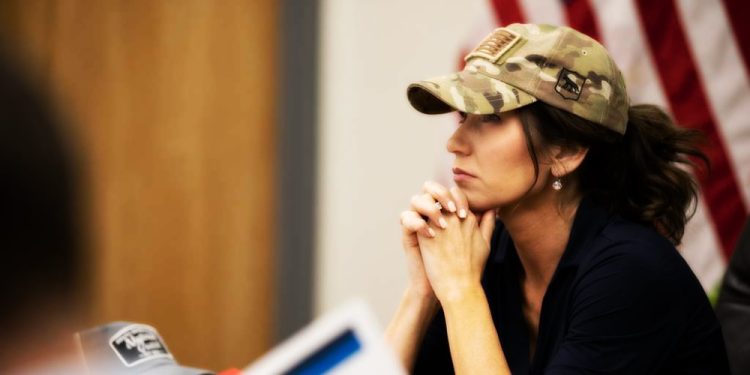(The Epoch Times)—Over 2,500 years ago, a renowned Chinese strategist launched trade wars—food wars, more specifically—to conquer other states.
A similar scenario in which communist China dominates the world through food security is what U.S. lawmakers are trying to avoid by holding a hearing on Wednesday about “the danger China poses to American agriculture.”
South Dakota Gov. Kristi Noem told lawmakers, “The threat is very real to us every single day.”
According to her, Chinese nationals contacted her state’s Department of Agriculture and Natural Resources last summer, “wishing to meet, tour, and have conversations about how we process and grow our food.” She said her staffers declined the meetings and learned days later from the State Department that those Chinese were spies “trying to steal our Intellectual Property and crop genetics.”
‘Asymmetric Warfare’
The Grain and Material Reserves Bureau of Hebei, the province surrounding Beijing, listed the Chinese strategist’s acts as the earliest historical “food war” lessons.
For example, the duke of Qi set off the trend of wearing cotton. Citizens of Qi began to buy cotton from two neighboring states, Lu and Liang, elevating cotton prices. As a result, those states abandoned agriculture and focused on producing cotton for profit.
However, a year later, Qi stopped buying cotton and cut off its trade with Lu and Liang, which couldn’t feed their own citizens. Many people in Lu and Liang migrated to Qi. Three years later, Lu and Liang folded under Qi without a war.
Calling food warfare a form of “asymmetric warfare,” the article published by Hebei’s Grain and Material Reserves Bureau says, “Food warfare is an alternative form of war, mainly characterized by long-term siege and starvation.
“The initiator uses the form of cutting off food sources, restricting food trade, destroying food storage, and forcibly expropriating people’s rations to achieve the goals by creating manmade famine, chaos, and unrest.”
Ms. Noem is concerned about U.S. agricultural dependence on China.
At the hearing, she warned lawmakers that the Chinese Communist Party (CCP) intends to “buy up our entire food supply chain.” She said she had witnessed Chinese purchases of fertilizer companies, food processing companies, and now farmland.
“When America can’t feed itself, and we rely on other members of another country to feed us, it becomes a national security issue. The country that feeds us will control us,” she added.
Reduce Dependence on China
Members of the U.S. House Committee on Agriculture expressed bipartisan consensus on the threat the CCP poses. “Food security is national security,” lawmakers on both sides of the aisle said repeatedly throughout the hearing.
Josh Gackle, president of the American Soybean Association, shared with lawmakers China’s dominance as an export destination for U.S. soybean farmers.
China accounted for over half of the United States’ total soybean exports during the crop’s 2022/2023 marketing year, or Sept. 1, 2022, through Aug. 31, 2023. The total was $32.6 billion in 2023, of which China bought $18.8 billion, and the second largest destination was about $3.3 billion.
“The sheer scale of China’s demand for soybeans—more than 60% of global soy imports—cannot be replaced. One in three rows of soybeans grown in the U.S. is destined for China,” Mr. Gackle said, describing the current level of dependency on China.
To diversify markets, he identified Southeast Asia as a potential candidate. However, developing new markets can be rather costly. Therefore, he advocated for private-public partnerships in the United States and corresponding appropriations in the next farm bill, on a five-year update schedule required by law.
The current farm bill was enacted in 2018. President Joe Biden extended it through Sept. 30, 2024, while lawmakers firm up the updated version.





